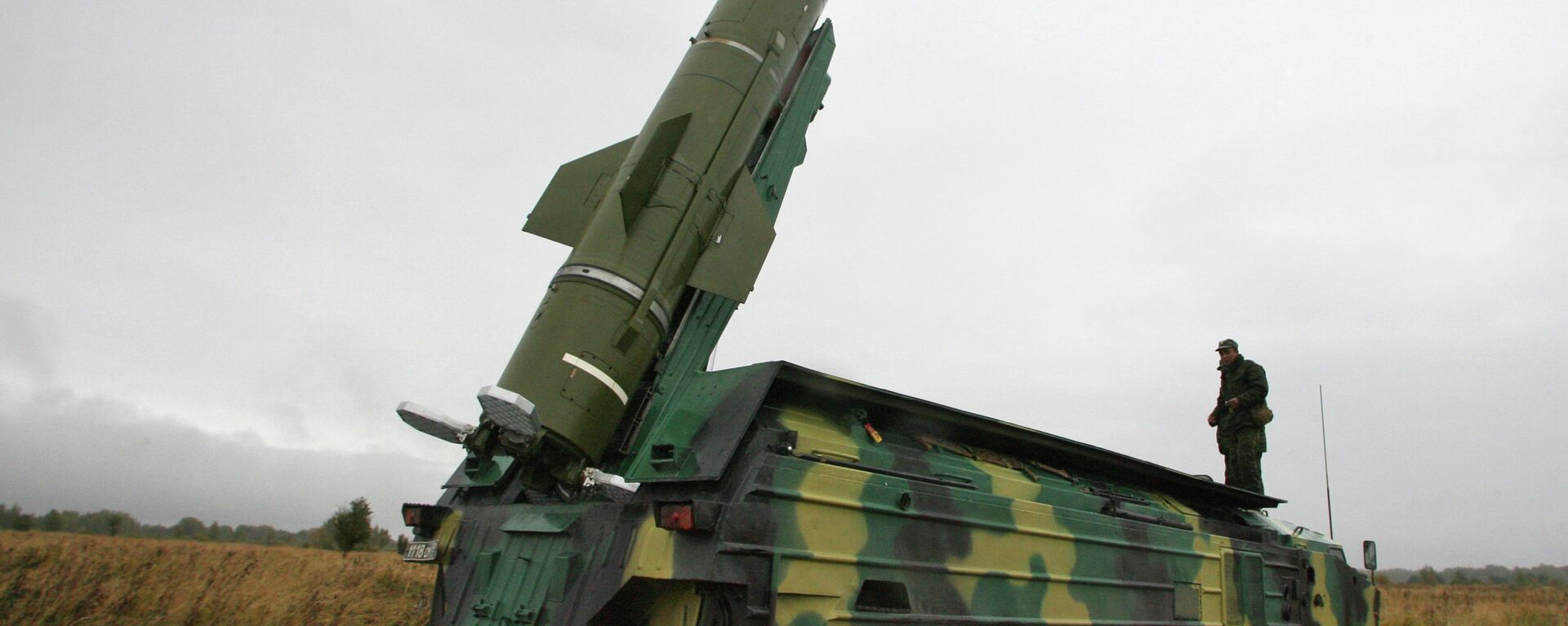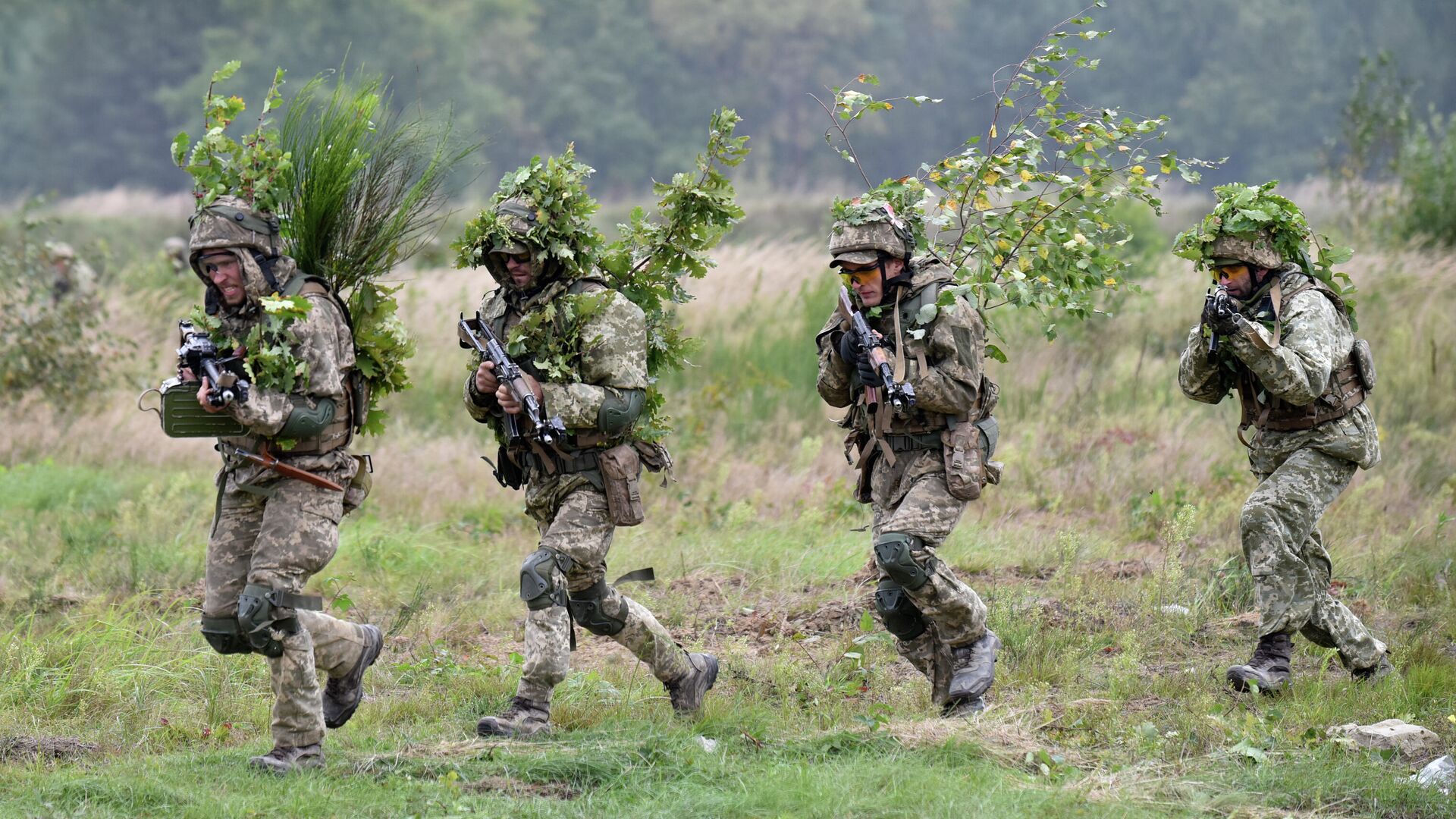https://sputnikglobe.com/20211220/norwegian-foreign-minister-calls-russias-security-proposals-to-us-nato-completely-unrealistic-1091658967.html
Norwegian Foreign Minister Calls Russia's Security Proposals to US, NATO 'Completely Unrealistic'
Norwegian Foreign Minister Calls Russia's Security Proposals to US, NATO 'Completely Unrealistic'
Sputnik International
Norway's Foreign Minister Anniken Huitfeldt has called the lists of proposals Russia has sent to NATO and the US, including a stop to the alliance's expansion eastward, not feasible.
2021-12-20T06:25+0000
2021-12-20T06:25+0000
2021-12-20T06:25+0000
newsfeed
military & intelligence
russia
america
norway
scandinavia
nato
https://cdn1.img.sputnikglobe.com/img/07e5/0a/14/1090079853_0:275:3043:1988_1920x0_80_0_0_5f0c08743493a658aae6f5a3d059de93.jpg
Norway's Foreign Minister Anniken Huitfeldt has called the lists of proposals Russia has sent to NATO and the United States, which involve a halt to the alliance's eastward expansion and removal of weapons from member states included in the bloc post-1997, unrealistic.In May 1997, NATO and Russia concluded the so-called Basic Treaty, which provides for cooperation between the Western defence alliance and Russia, including a permanent council for talks.In that cooperation agreement, no promises were made that NATO wouldn't admit new members. However, assurances of non-expansion were provided to former Soviet leader Mikhail Gorbachev, which Russia continues to remind NATO of at every opportunity.In 1999, two years after the Basic Treaty was signed, Poland, Hungary, and the Czech Republic chose to join NATO. Slovakia, Bulgaria, and Romania followed in 2004 alongside former Soviet republics Estonia, Latvia, and Lithuania. Since then, NATO has opened up to Ukrainian and Georgian membership, but no progress has been made so far.According to Huitfeldt, it is entirely up to each country to choose which international organisations it should be a member of.Huitfeldt further argued that it is Russia that is responsible for the tensions with Ukraine and the West following an alleged military buildup on the border that prompted yet another scare of a Russian "invasion", even if the movement of troops occurred fully within Russia's own borders. "There is no basis for the Russian force-building. It is destabilising, and it creates a security situation for Europe that we have not seen for a long time", Huitfeldt said, calling on Moscow to ease tensions.According to Huitfeldt, dialogue is key in the current situation."We ask Russia to stand down. At the same time, we are concerned with maintaining the low voltage in the north, and fortunately we have not seen any buildup of strength there", Huitfeldt concluded.The newly-minted foreign minister earlier called to limit NATO traffic near Russia and suggested it was in Norway's interest to use its own armed forces as a means of balancing deterrence with reassurance.On 17 December, the Russian Foreign Ministry published two draft agreements on security guarantees between the Russian Federation, the US, and NATO that had been handed over to US officials.Among other things, NATO is asked to abandon its military activities in Ukraine, the Caucasus, and Central Asia, while NATO and Russia are required not to deploy intermediate and short-range missiles in areas from where they can hit each other. Both parties are also required not to conduct exercises above the brigade level near an agreed upon border zone, to regularly exchange information on one another's military drills, and to establish hot lines for emergency contacts.Commenting on the draft proposals, Russia's Deputy Foreign Minister Sergei Ryabkov emphasised that they are not "formulated as a menu, where it is possible to pick and choose", but rather "reinforce each other and must be evaluated in their totality".Deputy Foreign Minister Alexander Grushko said Russia will be forced to take measures to create a system of counterthreats if the US and NATO reject Moscow's security proposals.The Western media, meanwhile, continues to spin the narrative of Russia massing troops with the sole purpose of invading Ukraine, to the point of publishing maps of the future "invasion", which Moscow has repeatedly rejected as absurd. Kiev, by contrast, is seeking help from the West in the form of lethal weapons to "defend" itself and has promised Russia "lot of coffins coming back" in the event of hostilities.
https://sputnikglobe.com/20211218/moscow-if-us-rejects-security-proposals-russia-will-be-forced-to-create-counterthreats-1091631658.html
norway
scandinavia
Sputnik International
feedback@sputniknews.com
+74956456601
MIA „Rossiya Segodnya“
2021
News
en_EN
Sputnik International
feedback@sputniknews.com
+74956456601
MIA „Rossiya Segodnya“
Sputnik International
feedback@sputniknews.com
+74956456601
MIA „Rossiya Segodnya“
norway, nato, anniken huitfeldt, security proposals
norway, nato, anniken huitfeldt, security proposals
Norwegian Foreign Minister Calls Russia's Security Proposals to US, NATO 'Completely Unrealistic'
In draft security proposals presented by Russia last week, the Western alliance is asked to discard its military activities in Ukraine and other former Soviet republics, while both NATO and Russia are required not to deploy intermediate and short-range missiles in areas from where they can hit each other.
Norway's Foreign Minister Anniken Huitfeldt has called the lists of proposals Russia has sent to NATO and the United States, which involve a halt to the alliance's eastward expansion and removal of weapons from member states included in the bloc post-1997, unrealistic.
"The requirements are completely unrealistic", Huitfeldt told national broadcaster NRK, arguing that it would be like "turning the clock back 30 years".
In May 1997, NATO and Russia concluded the so-called Basic Treaty, which provides for cooperation between the Western defence alliance and Russia, including a permanent council for talks.
In that cooperation agreement, no promises were made that NATO wouldn't admit new members. However, assurances of non-expansion were provided to former Soviet leader Mikhail Gorbachev, which Russia continues to remind NATO of at every opportunity.
In 1999, two years after the Basic Treaty was signed, Poland, Hungary, and the Czech Republic chose to join NATO. Slovakia, Bulgaria, and Romania followed in 2004 alongside former Soviet republics Estonia, Latvia, and Lithuania. Since then, NATO has opened up to Ukrainian and Georgian membership, but no progress has been made so far.
According to Huitfeldt, it is entirely up to each country to choose which international organisations it should be a member of.
"It is the responsibility of each independent country to decide how foreign policy should be organised. It is important for Norway, it is important for the former Soviet republics. They have chosen [NATO] through democratic decisions in their national assemblies. That is the basis for any country's independence", the Norwegian foreign minister said.
Huitfeldt further argued that it is Russia that is responsible for the tensions with Ukraine and the West following an alleged military buildup on the border that prompted yet another scare of a Russian "invasion", even if the movement of troops occurred fully within Russia's own borders.
"There is no basis for the Russian force-building. It is destabilising, and it creates a security situation for Europe that we have not seen for a long time", Huitfeldt said, calling on Moscow to ease tensions.
According to Huitfeldt, dialogue is key in the current situation.
"We ask Russia to stand down. At the same time, we are concerned with maintaining the low voltage in the north, and fortunately we have not seen any buildup of strength there", Huitfeldt concluded.
The newly-minted foreign minister earlier called to limit NATO traffic near Russia and suggested it was in Norway's interest to use its own armed forces as a means of balancing deterrence with reassurance.
On 17 December, the Russian Foreign Ministry published two draft agreements on security guarantees between the Russian Federation, the US, and NATO that had been handed over to US officials.
Among other things, NATO is asked to abandon its military activities in Ukraine, the Caucasus, and Central Asia, while NATO and Russia are required not to deploy intermediate and short-range missiles in areas from where they can hit each other. Both parties are also required not to conduct exercises above the brigade level near an agreed upon border zone, to regularly exchange information on one another's military drills, and to establish hot lines for emergency contacts.

18 December 2021, 18:26 GMT
Commenting on the draft proposals, Russia's Deputy Foreign Minister Sergei Ryabkov emphasised that they are not "formulated as a menu, where it is possible to pick and choose", but rather "reinforce each other and must be evaluated in their totality".
Deputy Foreign Minister Alexander Grushko said Russia will be forced to take measures to create a system of counterthreats if the US and NATO reject Moscow's security proposals.
The Western media, meanwhile, continues to spin the narrative of Russia massing troops with the sole purpose of invading Ukraine, to the point of publishing maps of the future "invasion", which Moscow has repeatedly rejected as absurd. Kiev, by contrast, is seeking help from the West in the form of lethal weapons to "defend" itself and has promised Russia "lot of coffins coming back" in the event of hostilities.



